End poverty in all its forms everywhere

End poverty in all its forms everywhere
Given the multiple variables at stake, having a holistic view of a country’s revenue/tax collection and expenditures can be challenging. However, not having a vision of the balance can be a more demanding challenge for decision-makers. Quidgest’s approach on this subject is complex but simple to understand: centralize all the information in a single platform by providing common ground corporate services.
Individual departments usually carried out something that is now done a single time, reducing unnecessary duplication of effort, harmonizing policies, and consolidating relevant data under a single umbrella platform. Transparency, international credibility, and better resource management are some of the benefits of Quidgest’s Public Finance Shared Services solution.
Potential Impact of this Product on the 1st SDG
Target 1.a Ensure significant mobilization of resources from a variety of sources, including through enhanced development cooperation, in order to provide adequate and predictable means for developing countries, in particular least developed countries, to implement programs and policies to end poverty in all its dimensions.
Target 1.b Create sound policy frameworks at the national, regional and international levels, based on pro-poor and gender-sensitive development strategies, to support accelerated investment in poverty eradication actions.
Institutions which already adopted this solution
Coordination and Regional Development Committees (Portugal); Portuguese Accreditation Institute (IPAC); Attorney General’s Office (Portugal); International Relations Fund (Portugal); National Institute for Agricultural and Veterinary Research (Portugal); Portuguese National Assembly
Having a holistic view of the territory is Urban Planning Management’s primary objective. With it, city council administrators can strategically plan and seamlessly manage in real-time the region via a portal that centralizes all the information about property management and assets under the chamber’s jurisdiction and enables the management of processes and associated documentation.
It is also worth noting the system comprises a geographical database with every registration attached, such as land licenses, roads, and municipal infrastructures.
In developing economies, Urban Planning Management implementation might translate into a more significant amount of fiscal revenues and a reduced amount of tax evasion for local governments, and the empowerment of the people who can have full control over their resources.
Potential Impact of this Product on the 1st SDG
Target 1.4 By 2030, ensure that all men and women, in particular the poor and the vulnerable, have equal rights to economic resources, as well as access to basic services, ownership and control over land and other forms of property, inheritance, natural resources, appropriate new technology and financial services, including microfinance.
Cities which already adopted this product
Maputo
1.1 By 2030, eradicate extreme poverty for all people everywhere, currently measured as people living on less than $1.25 a day;
1.2 By 2030, reduce at least by half the proportion of men, women and children of all ages living in poverty in all its dimensions according to national definitions;
1.3 Implement nationally appropriate social protection systems and measures for all, including floors, and by 2030 achieve substantial coverage of the poor and the vulnerable;
1.4 By 2030, ensure that all men and women, in particular the poor and the vulnerable, have equal rights to economic resources, as well as access to basic services, ownership and control over land and other forms of property, inheritance, natural resources, appropriate new technology and financial services, including microfinance;
1.5 By 2030, build the resilience of the poor and those in vulnerable situations and reduce their exposure and vulnerability to climate-related extreme events and other economic, social and environmental shocks and disasters;
1.A Ensure significant mobilization of resources from a variety of sources, including through enhanced development cooperation, in order to provide adequate and predictable means for developing countries, in particular least developed countries, to implement programmes and policies to end poverty in all its dimensions;
1.B Create sound policy frameworks at the national, regional and international levels, based on pro-poor and gender-sensitive development strategies, to support accelerated investment in poverty eradication actions.
Quidgest is a global technology company headquartered in Lisbon and a pioneer in intelligent software modeling and generation. Through its unique generative AI platform, Genio, develops complex, urgent, and specific systems, ready to evolve continuously, flexible, and scalable for various technologies and platforms. Partners and large organizations such as governments, multinational companies, and global multilateral institutions use Quidgest’s solutions to achieve their digital strategies.
R. Viriato, 7
1050-233 Lisboa | Portugal
Tel. +351 213 870 563
quidgest@quidgest.com